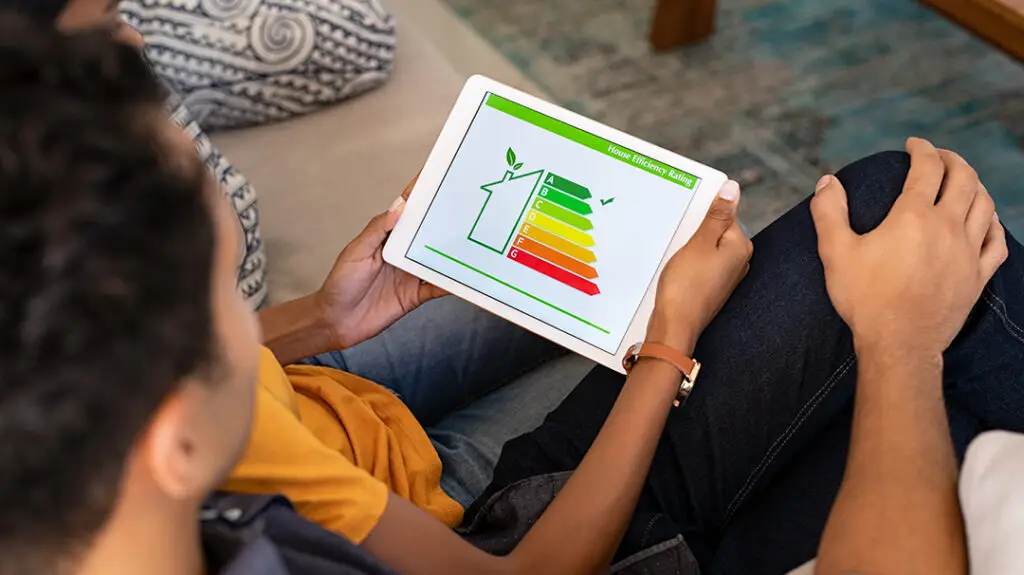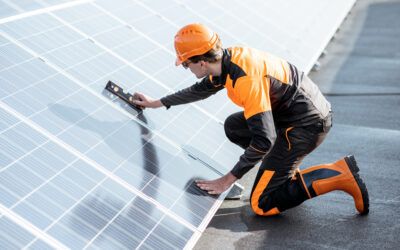Do you feel that paying your bills means spending money that you could use for other needs? Don’t you know which appliance consumes the most energy? Do you feel you are not helping the planet? If this is your situation, pay attention to the tricks to reduce the consumption of household appliances that Energy Intersolar teaches you.
It is no secret that household appliances are the ones that increase the value of our electricity bill the most. However, little is known about their efficient use, not only to help the planet but also to avoid affecting our personal finances.
Look at the energy label, so you can reduce the consumption of household appliances.
If you are considering purchasing a device and wish to do so at advantageous conditions, take a good look at the ones we are going to show you below:
Every appliance comes from the factory with an energy label that will be marked A, B, C, D, E and F with “A” being a more efficient appliance and “F” less efficient. This data will allow us to identify the annual energy consumption of the electronic appliance.
How can we identify if a piece of equipment is efficient? All equipment contains an energy label that will mark its category: “A” the most efficient versus “F” as less efficient, which will allow us to know the annual energy consumption that the appliance may have.
The European Commission’s objective is to make it easier for users to choose appliances that consume less energy and thus help the environment.
How to save energy with home appliances
- Avoid phantom or standby consumption
Telephones, computers, stereos… turning them off instead of leaving them on stand-by can save up to 10% of your total consumption. About 75 € for an average consumption (3,500 kWh/year). We recommend using power strips to turn them all off at the same time, and you can even buy so-called “smart” models that are able to detect if the main appliance is on stand-by (for example, a computer). At that moment what they do is to turn off the rest of the devices that are connected to it at that moment (speakers, screen, printer, etc).
- Cold wash
It is important to check the temperature at which you program your appliances. For example, washing clothes in the washing machine at 30º or less instead of 60º can save up to 60% energy. Don’t forget to clean the filter periodically.
- Charge your appliances to the fullest
The more you take advantage of the same washing or drying cycle to process your items, the lower total consumption you will have, since in addition to optimizing consumption (by putting a large load in the same cycle) you will have avoided additional cycles that were unnecessary.
- Dishwasher, uses the ECO program
You will save at least 20% in electricity and 16% less water compared to the normal program if you use the ECO program in the dishwasher. The disadvantage is that you will have to wait an extra hour. It is key to check that the salt and rinse aid levels in your dishwasher are adequate and clean the filter regularly.
- Dryer, watch out if you’re going to iron later
All tumble dryer models have an interesting program in case we want to remove wrinkles with the iron. On the one hand, it makes ironing easier by leaving the clothes with more moisture, and on the other hand, it reduces energy consumption by 25%. Also, don’t forget to clean the lint filter and the condenser.
- The refrigerator
Regulating the temperature of the refrigerator is essential to save light and money: between 3 and 7º for the refrigerator, if you do not have meat or fish, and from -20 to -18º for the freezer. Try to keep the door closed as much as possible and clean the frost off the fridge: 2 mm increase consumption by 10%.
- Air conditioning with heat pump
If you use the air conditioner to heat your home in winter, you can air it first thing in the morning for 5 minutes by opening the windows, but then keep the doors and windows tightly closed. Use the ECO mode, which saves about 30% energy, and don’t forget to clean the filters at least once a year.
Read also: Self-consumption of photovoltaic energy in households soars





